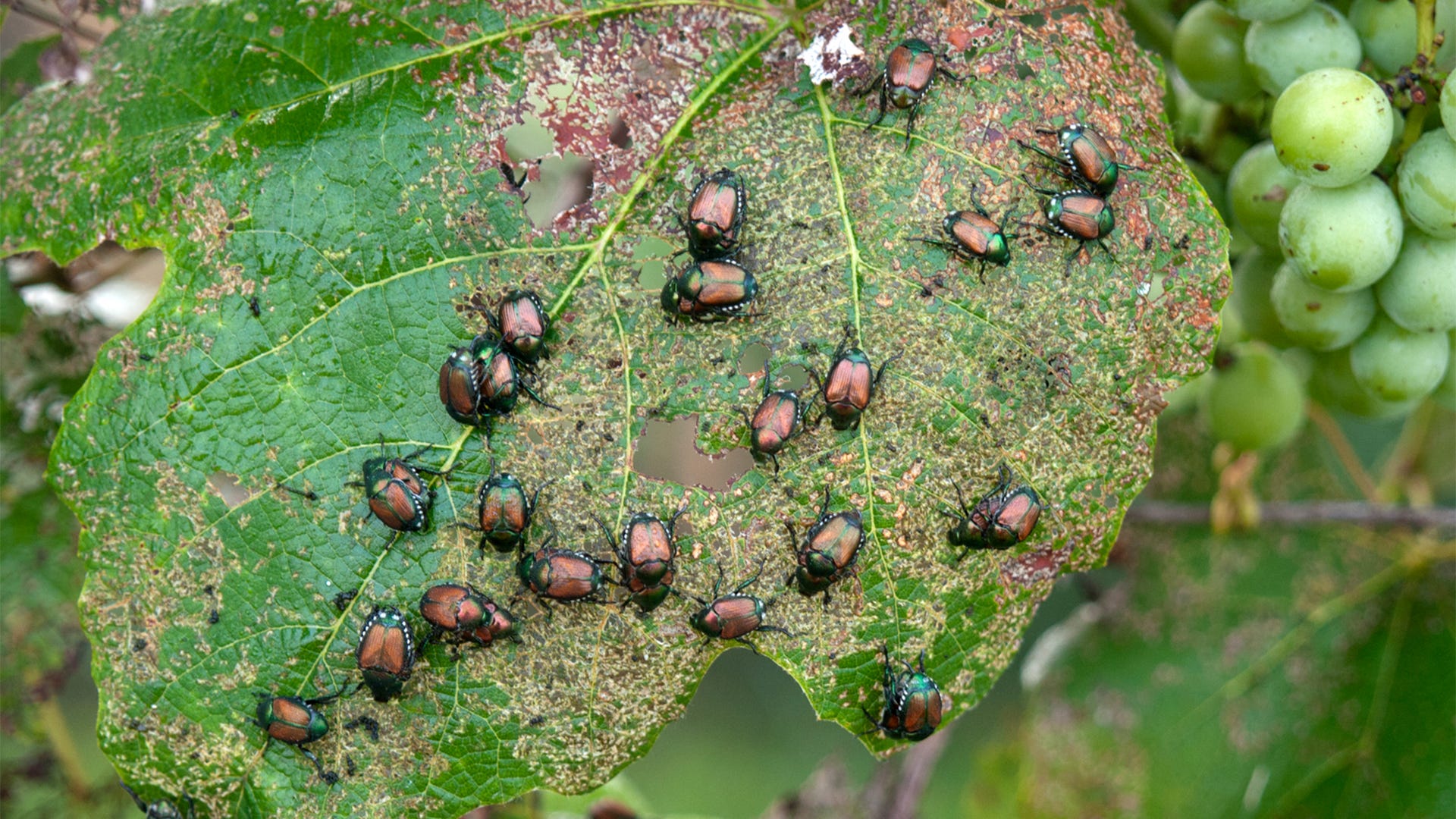

Articles
How To Keep Bugs Out Of Garden
Modified: October 30, 2024
Learn effective gardening techniques to keep bugs out of your garden. Discover natural pest control methods to maintain a healthy and thriving garden.
(Many of the links in this article redirect to a specific reviewed product. Your purchase of these products through affiliate links helps to generate commission for Storables.com, at no extra cost. Learn more)
Introduction
When it comes to tending to your garden, one of the biggest challenges you may face are unwanted bugs. These pesky insects can wreak havoc on your plants, destroying their leaves, stunting their growth, and even spreading diseases. But fear not, as there are several effective strategies you can implement to keep bugs out of your garden and maintain a vibrant and healthy environment.
Whether you’re a seasoned gardener or just starting out, understanding the importance of bug prevention is key to ensuring the success of your garden. In this article, we will explore why bugs can be a problem in the garden, identify common garden bugs to watch out for, and discuss various preventative measures and natural remedies to keep bugs away.
By implementing these strategies, you can create a pest-free garden that thrives with lush plants and abundant harvests. So let’s dive in and discover how to keep those pesky bugs at bay!
Key Takeaways:
- Embrace a holistic approach to pest prevention by combining natural remedies, organic pest control, and companion planting to create a balanced and resilient garden ecosystem.
- Regular maintenance, vigilant monitoring, and integrated pest management are essential for creating a healthy and thriving garden environment that naturally resists pests and diseases.
Read more: How To Keep Bugs Out Of A Patio
Why Bugs Are a Problem in the Garden
Bugs can quickly become a major concern in any garden. They not only feed on your plants but can also transmit diseases from one plant to another. Understanding why bugs are a problem in the garden is crucial in order to take appropriate measures to prevent infestations.
Firstly, bugs can cause significant damage to your plants. Some insects, such as caterpillars, beetles, and aphids, chew on leaves, flowers, fruits, and stems, causing physical harm and weakening the overall health of the plants. This can lead to stunted growth, reduced yield, and even death in severe cases.
In addition to physical damage, bugs can also introduce diseases to your garden. For example, certain species of aphids and whiteflies can carry and transmit viruses to healthy plants, causing a wide range of symptoms from yellowing leaves to stunted growth. These diseases can spread rapidly, infecting multiple plants and even leading to the loss of an entire crop.
Furthermore, some bugs can attract predators that may harm or disrupt the delicate balance of your garden ecosystem. For instance, ants are known to protect and “farm” pests like aphids, which produce a sweet substance called honeydew that ants feed on. This symbiotic relationship can result in larger populations of aphids and other destructive insects.
Lastly, certain bugs, like slugs and snails, can be extremely voracious eaters and can quickly decimate your plants if left unchecked. These pests are especially problematic in moist environments and can leave behind a trail of destruction in their wake.
Overall, bugs pose a threat to the health and productivity of your garden. By understanding the reasons behind their presence and the damage they can cause, you can take proactive steps to prevent infestations and protect your plants.
Common Garden Bugs to Watch Out For
When it comes to keeping bugs out of your garden, it’s important to be familiar with the common pests that can invade your plants. By identifying these bugs early on, you can take prompt action to prevent infestations and minimize damage. Here are some of the most common garden bugs to watch out for:
- Aphids: These small, pear-shaped insects are usually found in clusters on the undersides of leaves. They suck sap from plants, causing wilting, stunted growth, and the development of sticky honeydew.
- Caterpillars: The larvae of butterflies and moths, caterpillars have a voracious appetite and can quickly devour the foliage of many plants. Look out for chewed leaves and small droppings (frass).
- Whiteflies: These tiny, winged insects can gather in large numbers on the undersides of leaves. They suck plant sap, causing yellowing, wilting, and the secretion of sticky honeydew.
- Spider Mites: These microscopic pests feed on plant sap, causing stippled leaves, bronzing, and webbing. They thrive in hot and dry conditions, often infesting indoor plants as well.
- Slugs and Snails: These slimy creatures can wreak havoc on your garden, especially in damp environments. They feed on leaves, stems, and soft plant tissues, leaving behind irregular holes and slime trails.
- Beetles: Numerous beetle species, such as Japanese beetles and Colorado potato beetles, can damage crops and ornamental plants. They chew on leaves, flowers, and fruits, often causing significant defoliation.
It’s important to note that not all insects in your garden are harmful. Some beneficial insects, like ladybugs, lacewings, and praying mantises, actually prey on garden pests and help keep their populations in check. Therefore, it’s essential to familiarize yourself with both the beneficial and harmful bugs in your garden in order to implement effective pest control strategies.
By regularly inspecting your plants and being vigilant for the presence of these common garden bugs, you can proactively address potential infestations and maintain the health and beauty of your garden.
Preventative Measures to Keep Bugs Out of Your Garden
Prevention is the key to keeping bugs out of your garden and maintaining a thriving and pest-free environment. By implementing these preventative measures, you can significantly reduce the risk of insect infestations and minimize damage to your plants:
- Maintain good garden hygiene: Keep your garden clean and free from debris, fallen leaves, and decaying plant matter. These can harbor pests and provide them with a favorable environment to multiply. Regularly remove weeds and trim overgrown vegetation to eliminate hiding places for insects.
- Practice crop rotation: Rotate your crops each year to disrupt the life cycles of pests that target specific plants. This can help prevent the buildup of pest populations and reduce the risk of reinfestation.
- Use physical barriers: Install protective barriers such as row covers, netting, or fences to shield vulnerable plants from pests. This can effectively prevent insects from accessing and damaging your plants.
- Encourage beneficial insects: Attract beneficial insects to your garden by planting native flowers, herbs, and shrubs that provide nectar and pollen. These beneficial insects, such as ladybugs, lacewings, and hoverflies, can help control pests naturally.
- Practice proper watering: Avoid overwatering your plants, as excessive moisture can create a favorable environment for pests like slugs, snails, and fungal diseases. Use drip irrigation or water at the base of plants instead of overhead watering, which can promote fungal growth.
- Inspect and remove infected plants: Regularly inspect your plants for signs of pest infestation or disease. If you notice any affected plants, promptly remove and dispose of them to prevent the spread of pests and diseases to other plants.
- Implement strict garden hygiene: Clean your gardening tools regularly to prevent the transfer of pests from one plant to another. Sterilize pots, trays, and other equipment before reusing them to avoid introducing pests into your garden.
- Monitor and trap pests: Set up insect traps or sticky traps to monitor and trap pests. This can help you identify the types and populations of bugs in your garden and take appropriate measures to control them.
- Introduce beneficial nematodes: Beneficial nematodes are microscopic roundworms that can be applied to the soil to control pests like grubs, cabbage worms, and flea beetles. They parasitize and kill harmful insects without harming beneficial ones.
By implementing these preventative measures, you can create a garden environment that is less favorable to pests and discourage infestations before they become a major problem. Remember that a combination of different strategies may be necessary, depending on the specific pests present in your garden. It is always important to monitor your plants regularly and take action at the first sign of pest activity.
Natural Remedies to Keep Bugs Away
If you prefer to take a more natural approach to pest control in your garden, there are several effective remedies you can employ to keep bugs at bay. These natural solutions are safe for both your plants and the environment. Here are some popular natural remedies to consider:
- Neem oil: Neem oil is derived from the neem tree and acts as a repellent and insecticide. It disrupts the feeding and reproduction patterns of pests like aphids, whiteflies, and spider mites. Dilute neem oil according to the instructions on the packaging and spray it on affected plants.
- Garlic and onion spray: Create a homemade spray by blending garlic and onions with water and straining the mixture. Spray this solution on plants to repel a variety of pests, including aphids, caterpillars, and beetles.
- Diatomaceous earth: Diatomaceous earth is a fine powder made from the fossilized remains of microscopic organisms. It is effective at controlling crawling insects like slugs, snails, and ants. Sprinkle a thin layer of diatomaceous earth around plants or directly on pests to deter and dehydrate them.
- Essential oils: Certain essential oils have insect-repellent properties. Peppermint, eucalyptus, and lavender oils are particularly effective against a wide range of garden pests. Dilute a few drops of the chosen essential oil in water and spray it on plants.
- Hot pepper spray: Capsaicin, the compound responsible for the spicy heat in peppers, can deter bugs. Create a spray by blending hot peppers (such as jalapenos or cayenne) with water. Strain the mixture and spray it on plants to repel insects.
- Companion planting: Some plants naturally repel certain pests or attract beneficial insects. For example, planting marigolds around the garden can deter aphids and nematodes, while attracting pollinators like bees. Research companion planting combinations that work well for the specific pests in your garden.
- Herbal sprays: Brew herbal concoctions using plants like chamomile, basil, or thyme. These plants contain compounds that repel insects. Steep the herbs in water, strain the mixture, and spray it on plants as a natural bug deterrent.
- Barriers and deterrents: Create physical barriers or use natural deterrents to protect your plants. For example, placing crushed eggshells or coffee grounds around plants can discourage slugs and snails from reaching them.
Remember, natural remedies may need to be reapplied frequently, especially after rain or watering, to maintain their effectiveness. Additionally, it’s important to test any new remedies on a small area of your plants before applying them more broadly to ensure they don’t cause any adverse effects.
By incorporating these natural remedies into your pest management routine, you can effectively repel insects and protect your garden without the use of synthetic chemicals.
One tip for keeping bugs out of your garden is to plant companion plants such as marigolds, garlic, and basil, which can help repel insects and protect your crops.
Read more: How To Keep Bugs Out Of Trash Can
Organic Pest Control Options
If you prefer an organic approach to pest control in your garden, there are several effective options available that are safe for both your plants and the environment. These methods focus on using natural substances and practices to manage pests. Here are some organic pest control options to consider:
- Handpicking: One of the simplest and most effective methods is handpicking pests off your plants. Regularly inspect your plants and manually remove any insects you find, such as caterpillars, beetles, or slugs.
- Beneficial insects: Encourage beneficial insects to your garden, such as ladybugs, lacewings, and praying mantises. These predators feed on garden pests and help keep their populations in check. You can attract beneficial insects by planting nectar-rich flowers and providing suitable habitats.
- Biological controls: Introduce beneficial organisms, such as predatory nematodes, predator mites, or parasitic wasps, that naturally reduce pest populations. These organisms prey on or parasitize certain pests, effectively controlling their numbers without the use of chemicals.
- Organic insecticides: Use organic insecticides derived from naturally occurring substances, such as pyrethrin (extracted from chrysanthemum flowers) or spinosad (derived from soil bacteria). These products are effective against a wide range of pests but have minimal impact on beneficial insects.
- Trap crops: Planting trap crops is an effective way to divert pests away from your main plants. These sacrificial plants are more attractive to pests, drawing them away from your desired crops. Monitor and remove pests from the trap crops regularly.
- Organic insecticidal soaps: Insecticidal soaps use potassium salts of fatty acids to target soft-bodied insects like aphids, whiteflies, and mealybugs. These soaps disrupt the pests’ outer cellular membrane, ultimately causing dehydration and death.
- Compost and organic fertilizers: Maintain a healthy garden ecosystem by adding compost and organic fertilizers. This helps improve soil fertility and plant health, making them less susceptible to pest attacks.
- Row covers: Use lightweight fabric row covers to physically exclude pests from your plants. These covers allow sunlight and water to reach the plants while acting as a barrier against insects.
- Organic baits and traps: Deploy organic baits and traps to control specific pests. For example, beer traps can be used to attract and drown slugs or snails, while pheromone traps can be effective against certain types of flying insects.
Remember to always read and follow the instructions on organic pest control products carefully to ensure their safe and effective use. It’s also important to practice proper timing and regular monitoring to address pest problems before they escalate.
By adopting these organic pest control options, you can effectively manage pests in your garden while promoting a healthy and sustainable growing environment.
Companion Planting for Bug Prevention
Companion planting is a traditional gardening practice that involves planting specific plants together to maximize their benefits and minimize pest problems. By strategically selecting companion plants, you can naturally repel pests, attract beneficial insects, and create a more balanced ecosystem in your garden. Here are some popular companion planting combinations for bug prevention:
- Marigolds: Marigolds are known for their ability to repel several pests, including aphids, nematodes, and whiteflies. Plant marigolds near susceptible crops to deter these bugs or interplant them throughout your garden as a natural pest barrier.
- Nasturtiums: Nasturtiums have a strong scent that repels aphids, whiteflies, and squash bugs. Plant them near beans, cucumbers, or tomatoes to keep these pests at bay. Additionally, nasturtiums serve as a trap crop, attracting aphids away from your main vegetables.
- Basil: Plant basil near tomatoes to repel tomato hornworms and flies. It also repels mosquitoes and acts as a general insect repellent. The strong scent of basil confuses pests and helps protect your plants.
- Lavender: Lavender is not only beautiful and fragrant but also acts as a deterrent against mosquitoes, moths, and fleas. Plant lavender near entrances to your garden or among vulnerable plants to keep these pests away.
- Chives: Chives have insect-repelling properties that can deter aphids, carrot flies, and Japanese beetles. Plant chives around roses or carrots to prevent infestations, as they serve as a natural barrier against these pests.
- Garlic: Garlic emits a strong odor that repels a wide range of pests, including aphids, cabbage worms, and carrot flies. Plant garlic near roses, brassicas, or root vegetables to discourage these bugs.
- Sage: Sage has insect-repelling properties that make it effective against pests like cabbage moths, carrot flies, and slugs. Plant sage near brassicas, carrots, or other vulnerable plants to provide natural protection.
- Sunflowers: Sunflowers, with their tall stalks and large flower heads, attract beneficial insects such as ladybugs, lacewings, and bees. These beneficial insects prey on garden pests, helping keep them under control.
Companion planting not only helps with pest prevention but also promotes healthier growth and increased biodiversity in your garden. By carefully planning your plant combinations and considering the specific pests you want to target, you can create a garden ecosystem that naturally defends itself against bugs.
Keep in mind that companion planting is not a guaranteed solution for all pest problems, and it may require experimentation to find the most effective combinations for your specific garden. Regular monitoring and maintenance are still necessary to address any pest issues that may arise.
By harnessing the power of companion planting, you can foster a more harmonious and pest-resistant garden environment while enjoying the beauty and benefits of diverse plant combinations.
Maintaining a Healthy Garden Environment
Maintaining a healthy garden environment is essential for keeping pests at bay and promoting the overall well-being of your plants. By following these tips, you can create optimal growing conditions and minimize the risk of pest infestations:
- Proper watering: Water your plants deeply and at the base to encourage deep root growth. This helps plants establish a strong foundation and become more resistant to pests and diseases. Avoid overwatering, which can create a humid environment that attracts pests and promotes fungal growth.
- Appropriate fertilization: Use organic fertilizers and compost to provide essential nutrients for your plants. A well-nourished plant is better equipped to withstand pest attacks. Avoid over-fertilizing, as excessive nitrogen can attract certain pests.
- Pruning and trimming: Regularly prune and trim your plants to remove dead or diseased branches and promote good airflow. This reduces the risk of fungal infections and makes it harder for pests to hide and infest your plants.
- Weed control: Keep weeds in check as they can compete with your plants for resources and provide hiding places for pests. Regularly remove weeds by hand or use mulch to suppress weed growth.
- Sanitation: Practice good garden hygiene by removing fallen leaves, decaying plant matter, and debris from your garden. These can serve as breeding grounds or hiding spots for pests and diseases.
- Vigilant monitoring: Regularly inspect your plants for any signs of pest activity or disease. Early detection allows you to take immediate action and prevent further damage. Look for visual cues such as holes, chewed leaves, wilting, or abnormal growth.
- Crop rotation: Rotate your crops each season to reduce the risk of pest build-up and disease recurrence. This practice disrupts the life cycles of pests that target specific plants and prevents them from establishing long-term populations.
- Encourage biodiversity: Plant a variety of flowers, herbs, and vegetables to attract a diverse range of beneficial insects. By creating a diverse ecosystem, you encourage natural pest control and reduce reliance on synthetic pesticides.
- Integrated pest management (IPM): Implement an integrated approach to pest management that combines multiple strategies. This includes a combination of preventative measures, natural remedies, cultural practices, and, if necessary, targeted and judicious use of organic insecticides.
- Regular soil testing: Test your soil periodically to ensure it has the proper pH balance and nutrient levels for healthy plant growth. Properly balanced soil helps plants thrive and resist pest infestations.
Maintaining a healthy garden environment requires consistent effort and attention, but the rewards are well worth it. By adopting these practices, you can create a vibrant and resilient garden that naturally resists pests and diseases, ensuring the long-term success of your plants.
Remember, every garden is unique, and it may take some trial and error to find the optimal approach for your specific conditions. Embrace the learning process, adapt as needed, and enjoy the fulfillment that comes from nurturing a thriving garden.
Conclusion
Maintaining a pest-free garden is an ongoing effort that requires a combination of preventive measures, natural remedies, and proper care. By understanding the role of bugs in the garden, identifying common garden pests, and implementing strategies to keep them away, you can create a healthy and thriving environment for your plants.
Preventative measures such as maintaining good garden hygiene, practicing crop rotation, and using physical barriers are crucial in minimizing pest populations. Natural remedies like neem oil, garlic and onion sprays, and companion planting can effectively repel pests without harming beneficial insects or the environment. Organic pest control options, such as biological controls and organic insecticides, provide targeted solutions when needed.
Companion planting offers a natural and symbiotic approach to pest prevention by strategically choosing plant combinations that repel pests or attract beneficial insects. By fostering a diverse and balanced garden ecosystem, you can create a natural defense against pests while promoting plant health.
Additionally, maintaining a healthy garden environment through proper watering, appropriate fertilization, pruning, sanitation, and vigilant monitoring plays a vital role in preventing pest infestations and promoting plant resilience. By following these practices and adopting an integrated pest management approach, you can effectively manage pests while minimizing environmental impact.
Remember, every garden is unique, and it may take some experimentation to find the best pest control strategies for your specific conditions. Regular observation, adjustments, and adaptation are essential in creating a successful and sustainable garden.
With commitment, patience, and a proactive approach, you can keep bugs out of your garden and enjoy a thriving oasis where your plants can flourish. Happy gardening!
Frequently Asked Questions about How To Keep Bugs Out Of Garden
Was this page helpful?
At Storables.com, we guarantee accurate and reliable information. Our content, validated by Expert Board Contributors, is crafted following stringent Editorial Policies. We're committed to providing you with well-researched, expert-backed insights for all your informational needs.
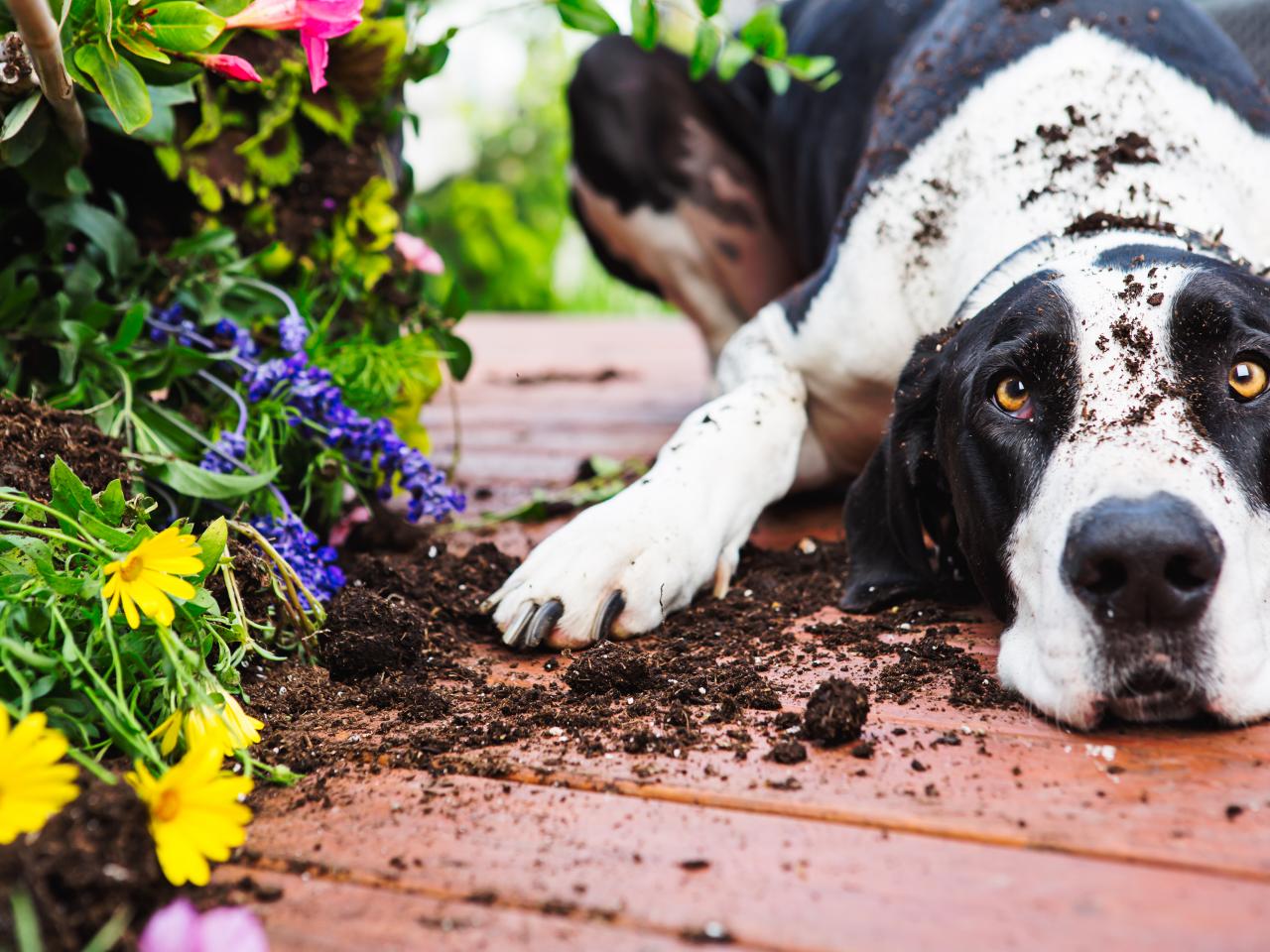
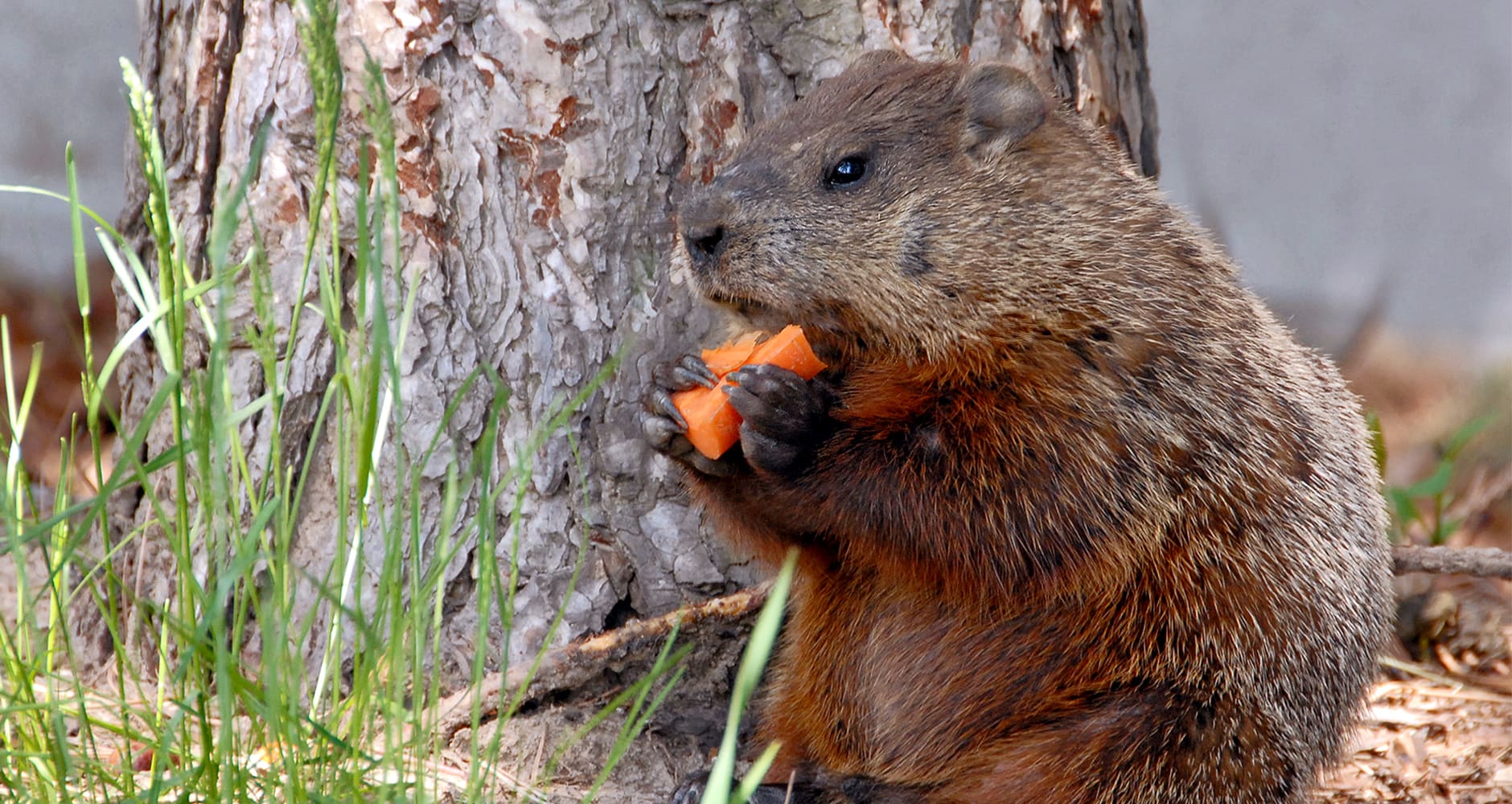

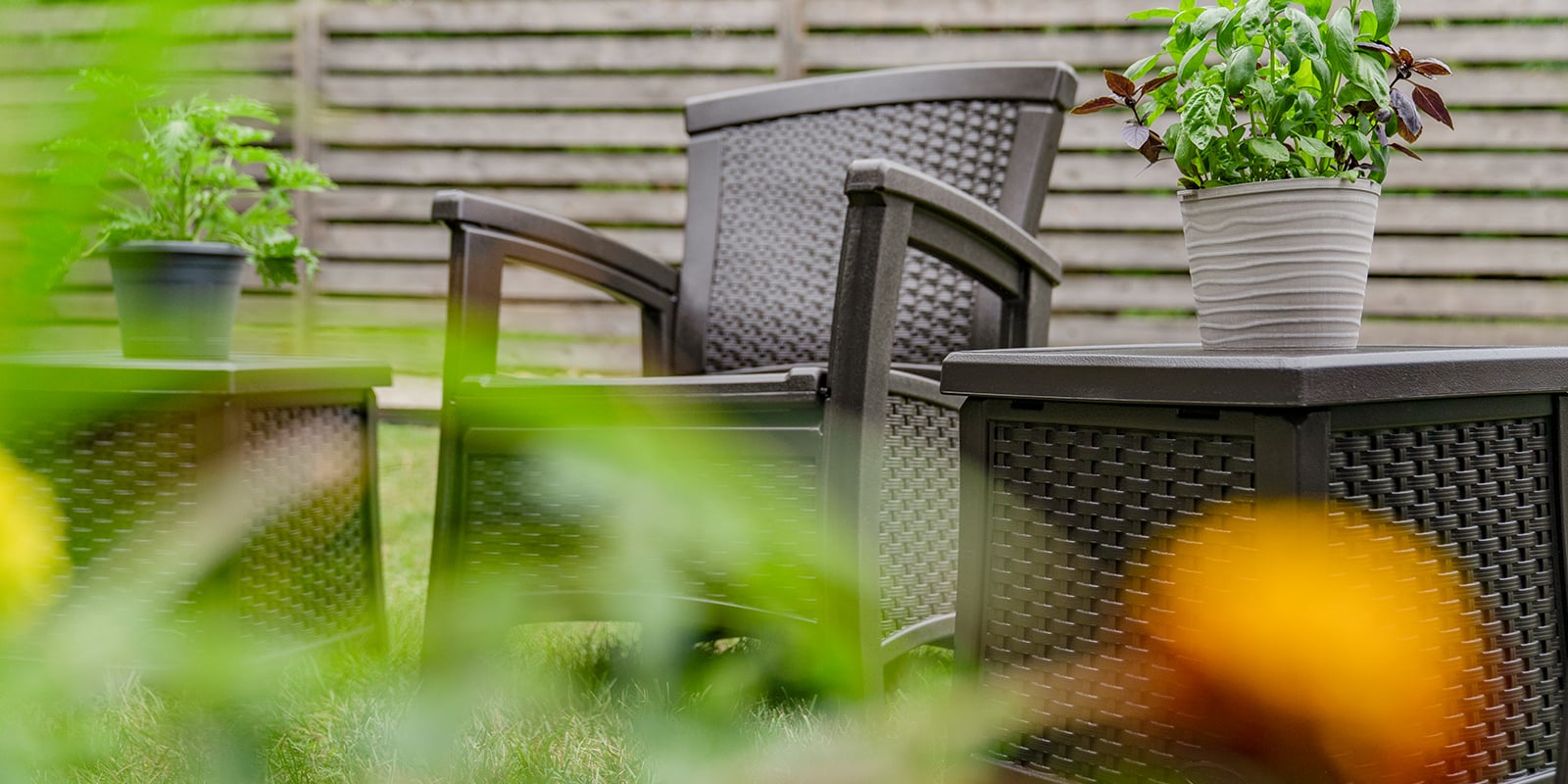
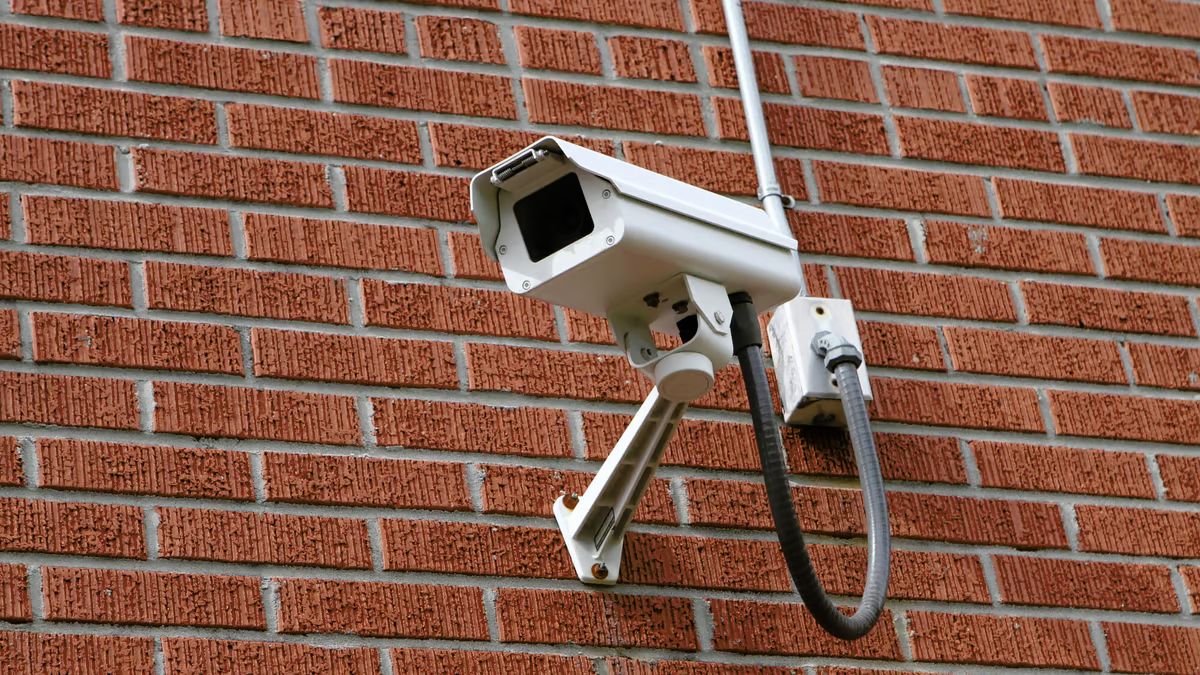



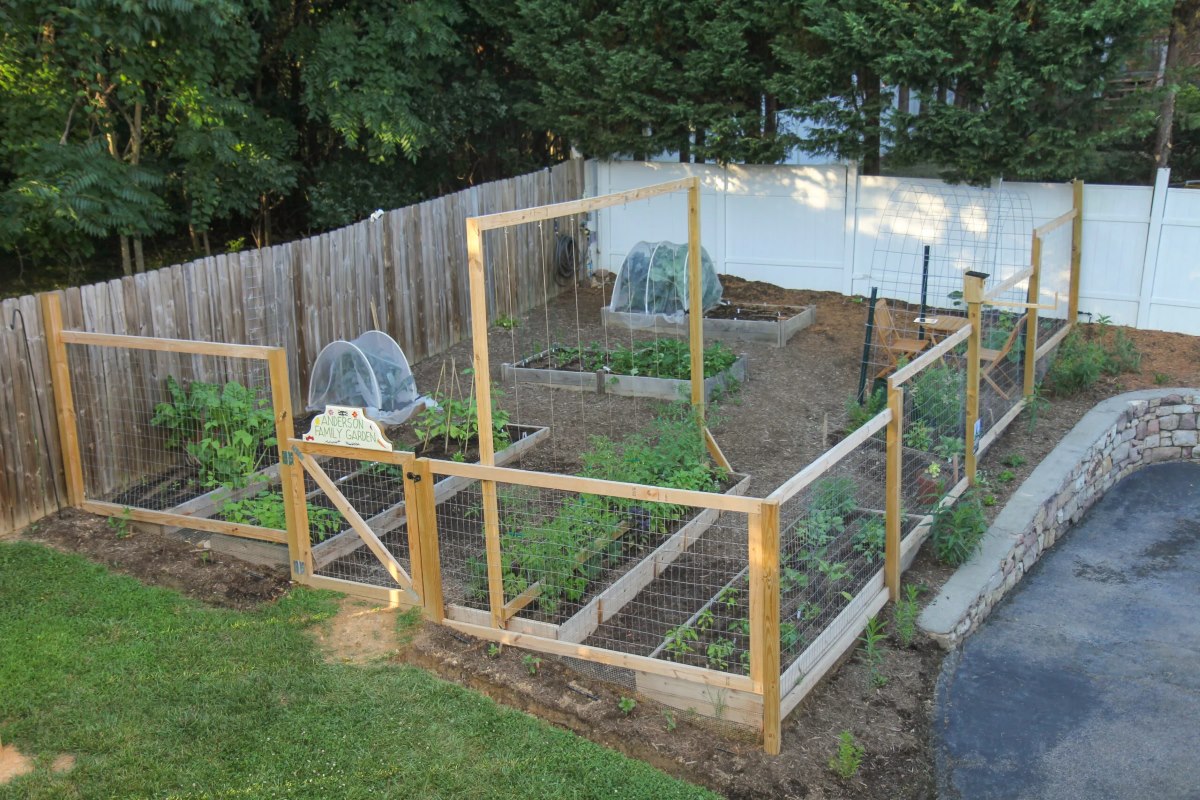


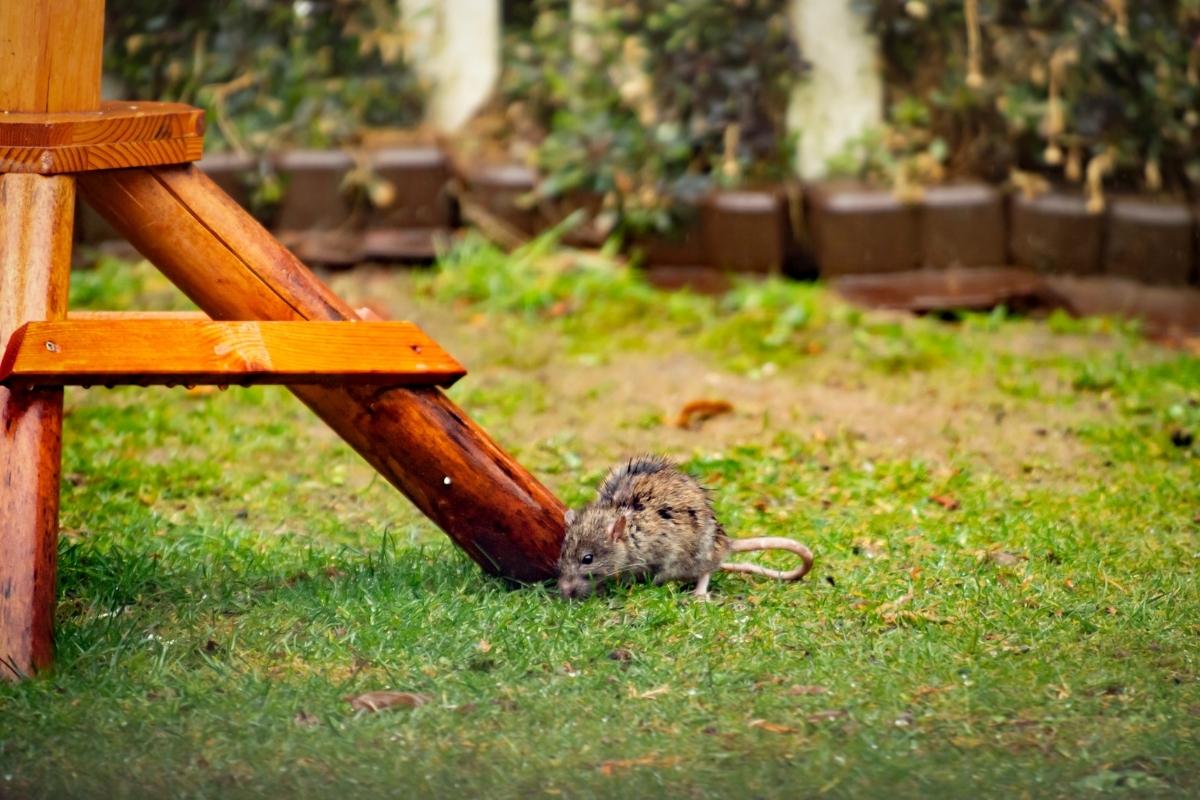
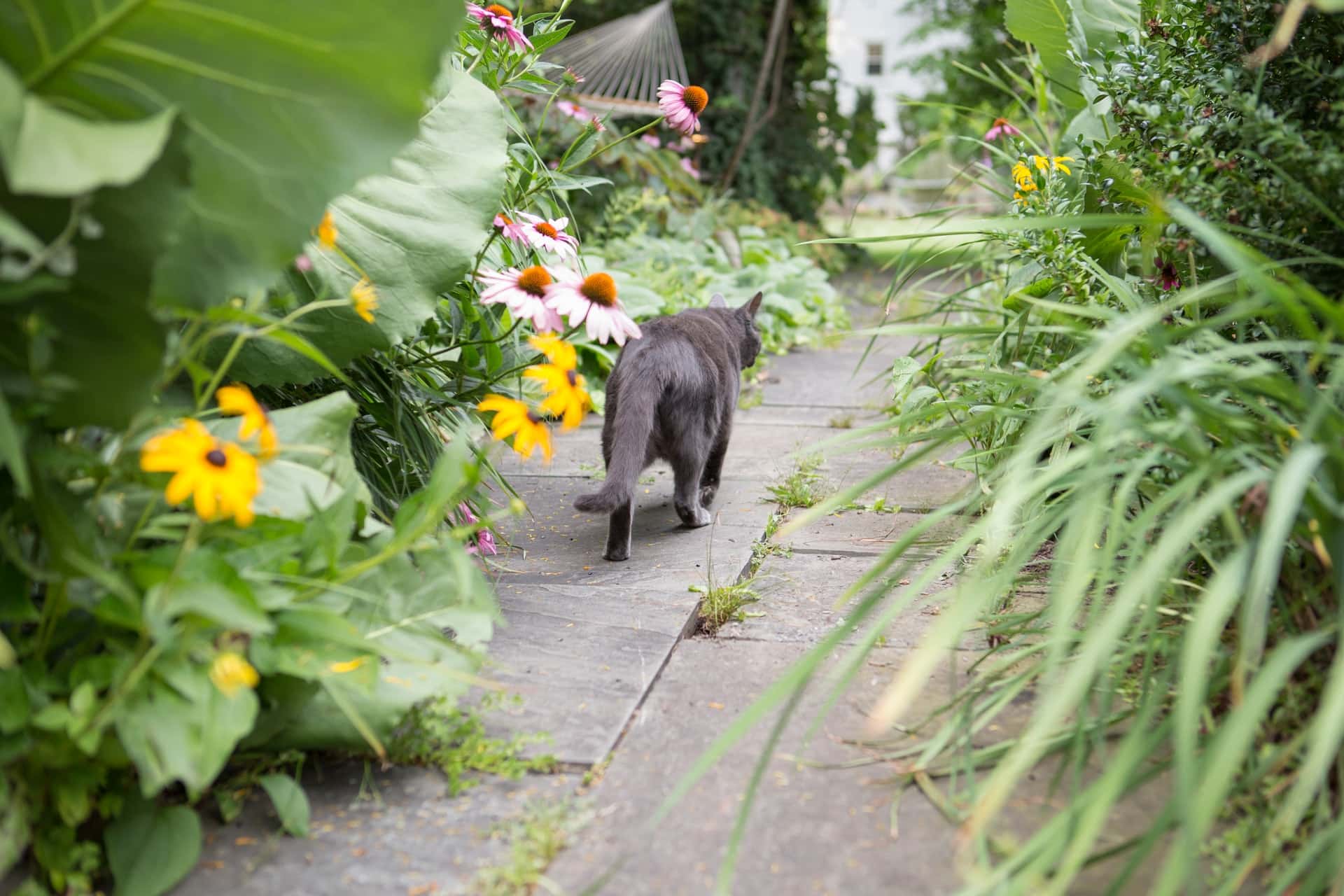
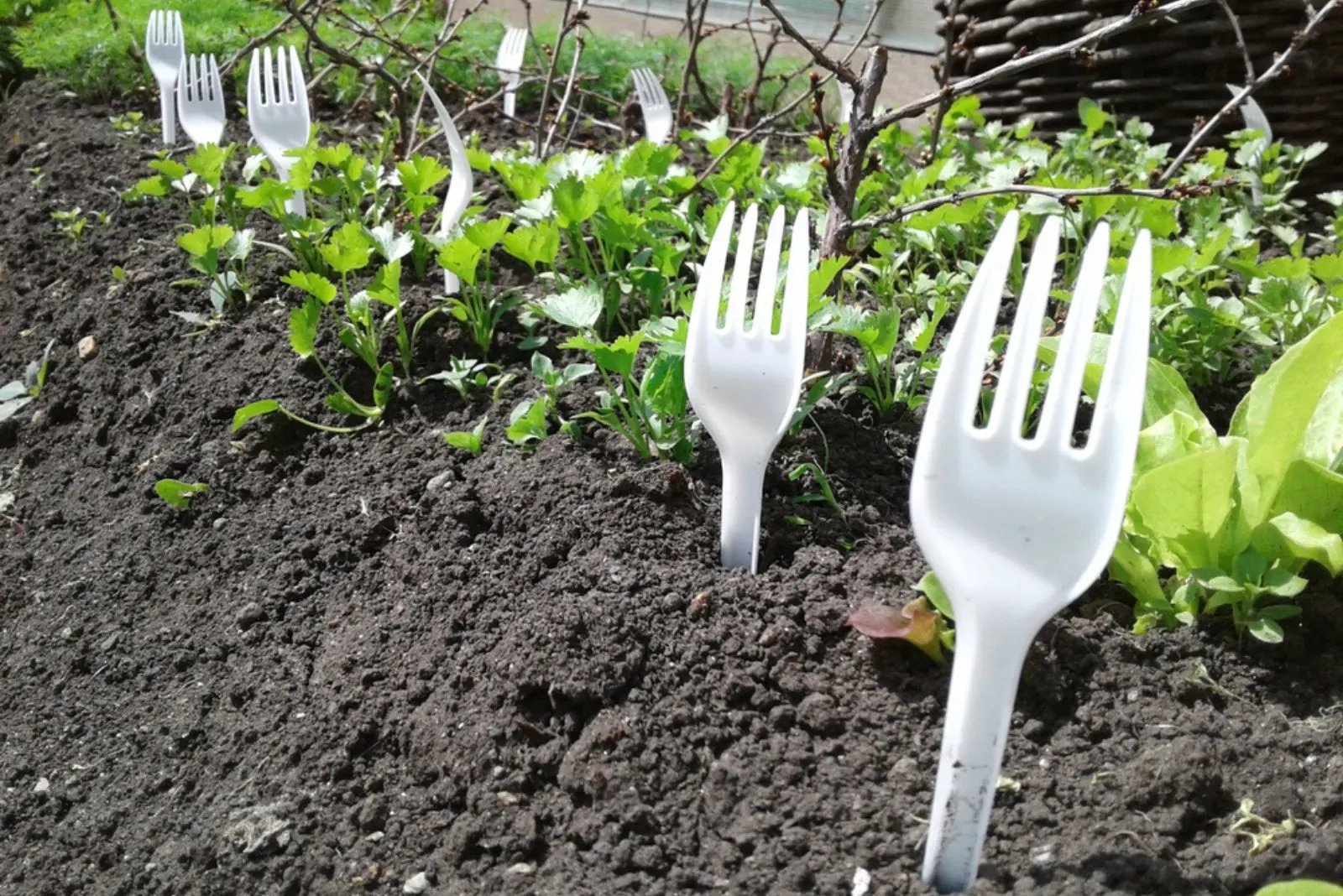

0 thoughts on “How To Keep Bugs Out Of Garden”